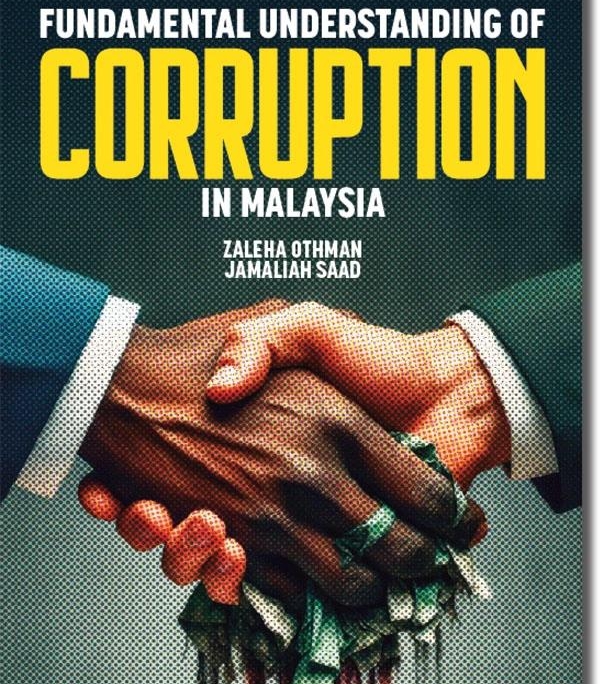Can Malaysia Ever Be Corruption-Free?
Corruption is one of Malaysia’s oldest national problems — older than most political parties, older than the Merdeka generation, and older than many of the institutions meant to fight it. Over the years, Malaysians have watched scandal after scandal unfold: some huge, some small, some embarrassing, some unbelievable.
Each time, people ask the same question:
“Can Malaysia ever be corruption-free?”
The honest answer is hard to swallow, but necessary to understand.
1. Corruption Is Not Just a Crime in Malaysia — It’s a Culture
Let’s be direct:
Corruption in Malaysia is not only found in high offices. It exists everywhere.
-
“ kopi duit ” at local departments
-
paying for faster approvals
-
skipping queues with connections
-
small favors exchanged for “smooth processing”
-
inflated contracts in business deals
Many Malaysians tolerate small-scale corruption because it’s “normal,” “easier,” or “that’s how Malaysia works.”
This cultural tolerance creates fertile ground for bigger corruption at higher levels.
Malaysia can reduce corruption, yes —
but it will never be corruption-free until the culture changes.
2. Political Corruption Thrives Because the System Rewards It
Corruption doesn’t happen randomly.
It happens because the system allows it.
-
Political funding is unclear
-
Parties need huge money to campaign
-
“rent-seeking” business interests exist
-
Civil service promotions can be influenced
-
Contracts often go to politically connected companies
-
Anti-corruption bodies lack full independence
In this environment, corruption becomes a political tool:
-
to fund elections
-
to reward allies
-
to punish rivals
-
to maintain control
Until the political structure is reformed, corruption will survive every government.
3. Every Government Promises to Fight Corruption — Until They Hold Power
Malaysians have heard the same slogan for decades:
-
“We will fight corruption.”
-
“No one is above the law.”
-
“Zero tolerance.”
But once in power, parties often become quieter.
Investigations slow down.
Big cases get complicated.
Selective prosecution becomes a concern.
Why?
Because fighting corruption seriously means:
-
offending powerful people
-
losing business donors
-
destabilizing coalitions
-
exposing party insiders
-
risking political survival
Every government wants cleanliness.
No government wants instability.
This is the conflict that Malaysia cannot escape.
4. Malaysians Say They Hate Corruption — But Vote Based on Other Issues
This is the uncomfortable truth:
When Malaysians vote, corruption is not the top priority.
They often vote based on:
-
race
-
religion
-
party identity
-
economic fears
-
emotional issues
-
social media narratives
A party caught in corruption can still win if it plays the identity card effectively.
Politicians know this.
That’s why some don’t fear corruption allegations — because it rarely decides elections.
Until voters punish corruption consistently, corruption will continue.
5. The Justice System Is Not Fully Independent — And Everyone Knows It
For Malaysia to be corruption-free, the justice system must be:
-
fearless
-
impartial
-
professionally strong
-
protected from political pressure
But Malaysia’s reality is different:
-
key institutions can be influenced
-
leadership changes when governments change
-
certain cases move fast, others move extremely slow
-
plea bargains create public suspicion
-
political timing affects prosecution decisions
As long as corruption can be negotiated, delayed, or selectively targeted, it cannot be eliminated.
6. Can Malaysia Improve? Absolutely. Can It Be Completely Clean? Unlikely.
Countries like Denmark, Finland, Singapore, and New Zealand come close to corruption-free status.
But they achieved this through:
-
decades of institutional reform
-
strong rule of law
-
a culture that hates corruption
-
political courage
-
independent prosecution
-
high public trust
Malaysia can definitely improve with:
-
independent MACC
-
reformed political financing
-
transparent procurement
-
better civil service accountability
-
digitalization to remove human discretion
-
strong whistleblower protections
But becoming totally corruption-free?
Not with the current political culture, social tolerance, and institutional design.
At best, Malaysia can aim for low corruption, not zero corruption.
7. The Real Question: Do Malaysians Actually Want a Corruption-Free Country?
This is the tough question nobody wants to ask.
A corruption-free Malaysia means:
-
no shortcuts
-
no special treatment
-
no “help from inside”
-
no “fast processing fee”
-
no political rewards for loyalty
-
no contracts for friends
-
no convenient exceptions
Are Malaysians ready for a system where rules apply equally, even if it slows things down or removes personal advantages?
If Malaysians want a clean country, they must also want a fair country.
The two cannot be separated.
Conclusion: Malaysia Can Clean Up — But Only If Malaysians Truly Want It
Corruption is not a destiny.
It is a choice — repeated by leaders, institutions, and citizens every day.
Malaysia can reduce corruption dramatically, but only if:
-
voters punish corrupt politicians, not reward them
-
civil service is empowered and protected
-
institutions become independent
-
political funding becomes transparent
-
education teaches ethics from young
-
society rejects small-scale corruption
-
leaders prioritize national interest over party survival
Malaysia may never be perfectly clean.
But it can be much cleaner — if Malaysians decide that corruption is no longer part of their national identity.
The real battle is not against corrupt people.
It is against a corrupt culture.
Related articles:
1. The Legacy of Mahathir’s Policies: The Cost of National Unity
2. Corruption — The Most Lethal Cancer of a Nation
3. Pursuing Profit in Business is Understandable, Serving the People in Politics is the Right Path
4. Anti-Corruption with an Iron Fist: Eradicating the Tumor of Graft to Safeguard National Foundations
5. Those who always use race and religion issues to seek political gains are morally corrupt leaders

